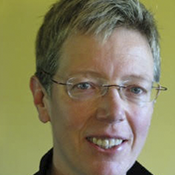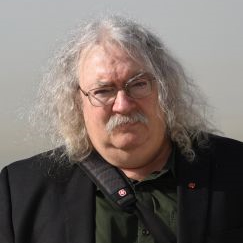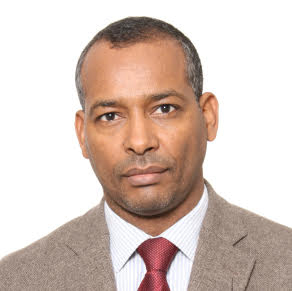Prof. Jutta Treviranus

Jutta Treviranus is the Director of the Inclusive Design Research Centre (IDRC) and professor in the faculty of Design at OCAD University in Toronto (http://idrc.ocadu.ca ). With its origins in the Adaptive Technology Resource Centre, which Jutta established in 1993, the IDRC is an internationally recognized center of expertise in the inclusive design of emerging information and communication systems and practices. Jutta also heads the Inclusive Design Institute a multi-university regional centre of expertise (http://inclusivedesign.ca). Jutta founded and directs an innovative graduate program in inclusive design at OCAD University. Jutta is the co-director of Raising the Floor International. Jutta leads many international multi-partner research networks that have created broadly implemented innovations that support inclusion e.g., Fluid Project (http://fluidproject.org), FLOE (http://floeproject.org), and many others. Jutta and her team have pioneered network-supported personalization as an approach to accessibility in the digital domain. She has played a leading role in developing accessibility legislation, standards and specifications internationally (including W3C WAI ATAG, IMS AccessForAll, ISO 24751, and AODA Information and Communication). Her most recent awards include the IEC 1906 Award, the Queen’s Diamond Jubilee Medal and recognition as one of Canada’s top 45 over 45.
Title: Preparing a next generation that understands the value of human diversity and can navigate complexity
Education provides a powerful lever to address not only the symptoms but the causes of current global crises. However, formal education has modelled a hierarchical, competitive and exclusionary culture. Our pedagogical practices squander and suppress the most valuable quality in students; namely their uniqueness and diversity. Our educational value structure gives privileged place to the formulaic, replicable competencies that can be replaced by machines. Students are implicitly prepared to punch down rather than lift up those that are more vulnerable. If formal education systems continue on the same path, we are preparing our students to be replaced by machines. We are teaching them to compete and exclude, thereby contributing to societal and environmental collapse. There is a nascent global movement to reverse this trend; to foster a more inclusive culture. Jutta will share inclusive design strategies that empower students to understand and value diversity, including their own unique differences, and to collaboratively navigate the complexity ahead.
Dr. Stephen Downes

Stephen Downes is a specialist in online learning technology and new media. Through a 25 year career in the field Downes has developed and deployed a series of progressively more innovative technologies, beginning with multi-user domains (MUDs) in the 1990s, open online communities in the 2000s, and personal learning environments in the 2010s. Downes is perhaps best known for his daily newsletter, OLDaily, which is distributed by web, email and RSS to thousands of subscribers around the world, and as the originator of the Massive Open Online Course (MOOC), is a leading voice in online and networked learning, and has authored learning management and content syndication software.
Downes is known as a leading proponent of connectivism, a theory describing how people know and learn using network processes. Hence he has also published in the areas of logic and reasoning, 21st century skills, and critical literacies. Downes is also recognized as a leading voice in the open education movement, having developed early work in learning objects to a world-leading advocacy of open educational resources and free learning. Downes is widely recognized for his deep, passionate and articulate exposition of a range of insights melding theories of education and philosophy, new media and computer technology. He has published hundreds of articles online and in print and has presented around the world to academic conferences in dozens of countries on five continents.
Title: How Open Education Can Change The World
Abstract:
In the two decades that internet access has grown around the world it has acted in many ways as a force that develops and empowers communities and societies. Digital technology has transformed society, created entire industries, informed minds young and old, and given each of us an opportunity to connect with others in our communities or across oceans. One key strand of this digital renaissance has been open education. It began as email lists and Usenet groups, grew through blogs and personal websites, and thrived in the age of social networks, online classrooms, and massive open online courses. Still, challenges remain. The education system as a whole has been slow to adopt open online learning. Prospective students still face tuition barriers and subscription barriers. Developers of open educational resources are required to be sustainable and at the same time maintain consistently high quality. To help overcome these challenges proponents of open education need to demonstrate clearly the advantages it offers to society. They need to show how it offers opportunity where there previously was none, how it addresses not only learning needs but also addresses challenges in recruitment and retention in both government and industry, and how it addresses the social need for an educated population to support the ideals of free and democratic governance.
Dr. Sidi Omar

Sidi M. Omar is a diplomat and researcher from Western Sahara. He has been a member of the diplomatic corps of the Frente POLISARIO and the Sahrawi Republic (SADR) since 1996 with diplomatic postings and missions in Africa, Asia and Europe and at the African Union and the United Nations. He has a European Doctorate in Peace and Conflict Studies from Universitat Jaume I of Castellón in Spain where he lectures as a visiting professor at the International Master in Peace, Conflict and Development Studies of the same university. His areas of research include peace, conflict and development studies, post-colonial and cultural studies, Western Sahara and North African and Middle Eastern politics, and he has several publications on these topics in English and Spanish.
Title: Peace education as a tool for social transformation by peaceful means
Abstract:
We live in a world in which violence, in all its forms, seems to permeate almost all spheres of human activity including politics, economy, culture, art, religion, science and even education. To deal with the consequences of these pervasive cultures of violence, it is essential that innovative educational approaches be incorporated into current education systems bearing in mind the role of education as a primary and effective tool for instruction, socialisation and potential social transformation. In this context, the paper will introduce and discuss peace education as an alternative educational approach guided by a critical, transformative and peace-oriented pedagogy whose aim is to equip learners and instructors reciprocally with the necessary competences to address and transform their conflicts and social realities by peaceful means.